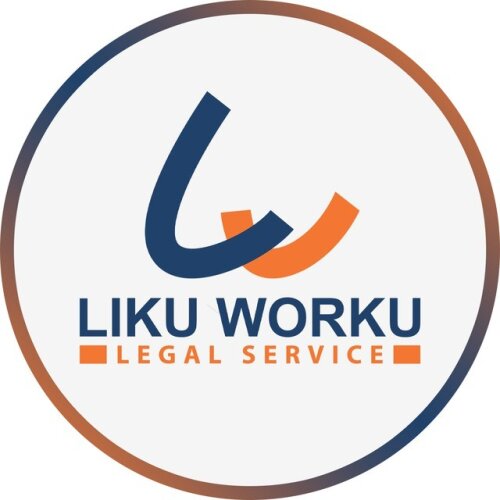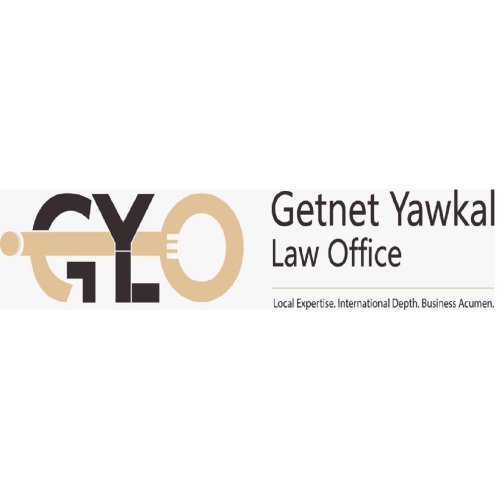Best Corporate & Commercial Lawyers in Addis Ababa
Share your needs with us, get contacted by law firms.
Free. Takes 2 min.
List of the best lawyers in Addis Ababa, Ethiopia
About Corporate & Commercial Law in Addis Ababa, Ethiopia
Corporate and commercial law in Addis Ababa focuses on the rules, regulations, and legal frameworks that govern businesses and commercial transactions. This field covers the establishment, operation, and dissolution of companies, as well as commercial contracts, mergers, acquisitions, intellectual property, foreign investment, and dispute resolution. Within Addis Ababa, being the commercial capital of Ethiopia, there is a concentration of business activities, making corporate and commercial law essential for entrepreneurs, companies, and investors wanting to operate or expand in the Ethiopian market.
Why You May Need a Lawyer
Many individuals and businesses face situations where professional legal advice becomes essential. Examples include establishing a new company, negotiating or drafting commercial contracts, resolving business disputes, merging or acquiring businesses, ensuring compliance with local regulations, obtaining necessary licenses, or navigating foreign investment rules. A lawyer with expertise in corporate and commercial law can help prevent costly mistakes, avoid misunderstandings, and protect your interests throughout the lifecycle of your business or investment in Addis Ababa.
Local Laws Overview
Corporate and commercial activity in Addis Ababa is primarily governed by the Ethiopian Commercial Code, the Civil Code, the Investment Proclamation, and sector-specific regulations. The Commercial Code outlines company formation, management structure, fiduciary duties, and obligations. Foreign investment is regulated under the Investment Proclamation, which specifies permitted sectors, minimum capital requirements, and incentives for investors. Important legal areas include contract law, intellectual property protection, employment regulations, taxation, and dispute resolution mechanisms. Compliance with registration, licensing, and reporting requirements is strictly enforced by authorities such as the Ministry of Trade and Regional Integration and the Ethiopian Investment Commission.
Frequently Asked Questions
What types of business structures are available in Addis Ababa?
Common business entities include private limited companies (PLC), share companies, sole proprietorships, partnerships, and branches of foreign companies. Each has its own requirements and legal implications.
What is the process to register a company in Ethiopia?
Registering a company typically involves selecting a unique name, preparing memorandum and articles of association, depositing minimum capital, submitting documents to the Ministry of Trade and Regional Integration, and obtaining a business license.
Are foreign investors allowed to fully own companies in Ethiopia?
Foreign investors are permitted to own companies in certain sectors, but not all economic sectors are open. The Investment Proclamation outlines eligible sectors and may require joint ventures in some cases.
What are the common legal issues in commercial contracts?
Issues include ambiguous terms, non-performance, breach of contract, inadequate dispute resolution clauses, and failure to comply with mandatory legal provisions.
What taxes are businesses required to pay?
Businesses are subject to corporate income tax, value added tax (VAT), excise tax (for certain goods), and other levies, depending on the nature of the business.
What is the role of the Ethiopian Investment Commission?
The Ethiopian Investment Commission oversees foreign investment, including project approval, issuing investment permits, and facilitating investor support services.
Is intellectual property protected in Ethiopia?
Yes, patents, trademarks, and copyrights can be registered and protected under Ethiopian law to secure your intellectual property rights.
How are commercial disputes resolved?
Disputes are commonly resolved through negotiation, mediation, arbitration, or litigation in regular courts. Parties may also choose alternative dispute resolution mechanisms as per their agreements.
Are employment laws relevant for businesses?
Yes, businesses must comply with Ethiopian labor laws concerning employment contracts, minimum wage, working hours, termination, and employee benefits.
How can a lawyer assist with mergers and acquisitions?
A lawyer can help identify regulatory requirements, conduct due diligence, structure deals, draft agreements, and manage the process to ensure legal compliance and minimize risks.
Additional Resources
For more information and official guidance, consider reaching out to the following entities:
- Ministry of Trade and Regional Integration - Responsible for company registration and trade licensing.
- Ethiopian Investment Commission (EIC) - Handles investment approvals, incentives, and foreign investor support.
- Federal Document Authentication and Registration Agency - Assists with authentication of business documents.
- Ethiopian Intellectual Property Authority - Manages trademark, patent, and copyright registrations.
- Chambers of Commerce and Sectoral Associations - Provides networking and support services for businesses.
Next Steps
If you believe you need legal assistance with a corporate or commercial matter in Addis Ababa, the first step is to consult an experienced lawyer who specializes in Ethiopian business law. Gather all relevant documents and details about your situation or proposed transaction before your consultation to ensure efficient and accurate advice. You may also want to contact the appropriate governmental bodies to clarify regulatory requirements. Taking timely legal advice will help protect your interests, ensure compliance, and support successful business operations in Addis Ababa.
Lawzana helps you find the best lawyers and law firms in Addis Ababa through a curated and pre-screened list of qualified legal professionals. Our platform offers rankings and detailed profiles of attorneys and law firms, allowing you to compare based on practice areas, including Corporate & Commercial, experience, and client feedback.
Each profile includes a description of the firm's areas of practice, client reviews, team members and partners, year of establishment, spoken languages, office locations, contact information, social media presence, and any published articles or resources. Most firms on our platform speak English and are experienced in both local and international legal matters.
Get a quote from top-rated law firms in Addis Ababa, Ethiopia — quickly, securely, and without unnecessary hassle.
Disclaimer:
The information provided on this page is for general informational purposes only and does not constitute legal advice. While we strive to ensure the accuracy and relevance of the content, legal information may change over time, and interpretations of the law can vary. You should always consult with a qualified legal professional for advice specific to your situation.
We disclaim all liability for actions taken or not taken based on the content of this page. If you believe any information is incorrect or outdated, please contact us, and we will review and update it where appropriate.
Browse corporate & commercial law firms by service in Addis Ababa, Ethiopia
Addis Ababa, Ethiopia Attorneys in related practice areas.

















